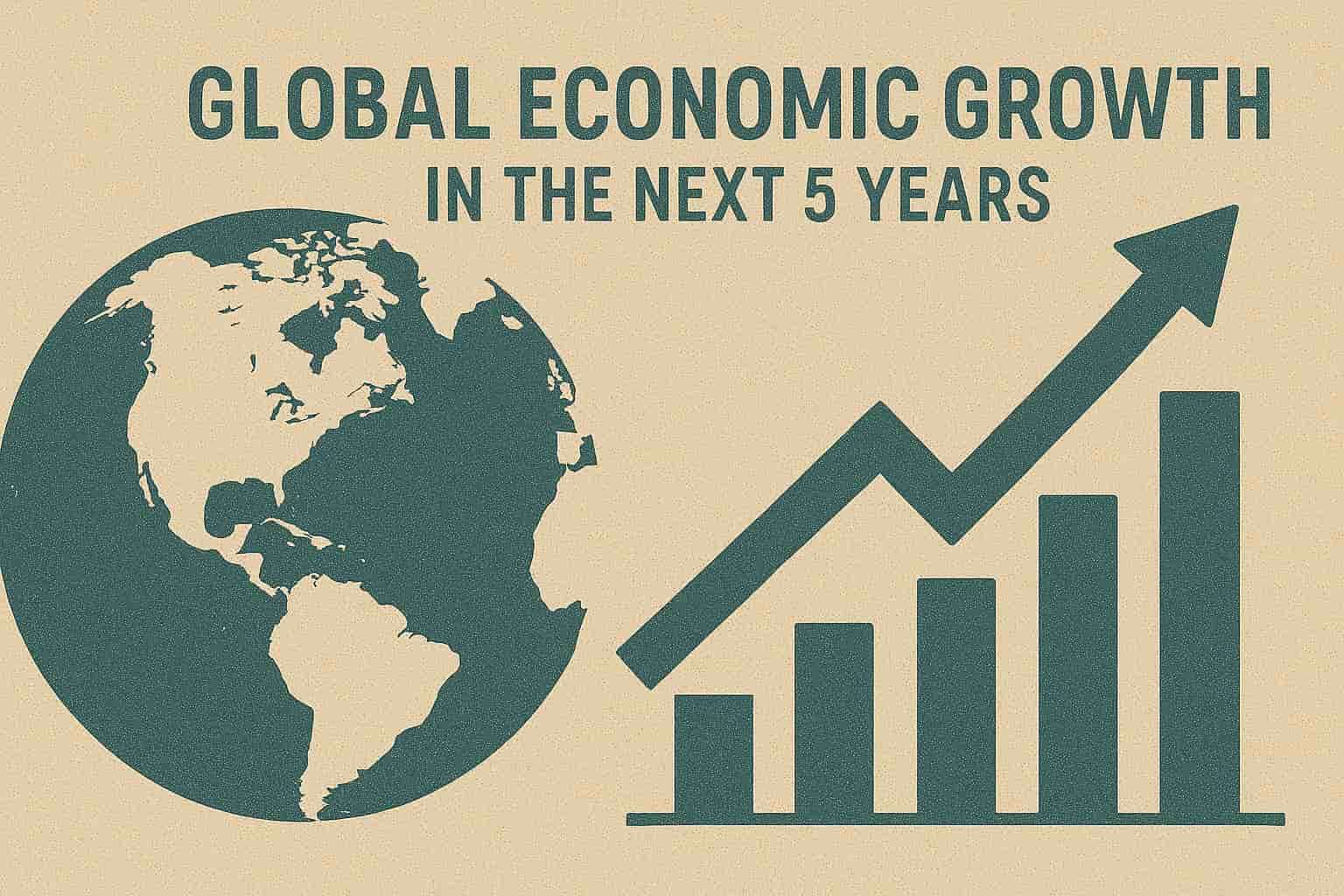AI is no longer just a buzzword, it’s transforming businesses, investments, and innovation. Over the next five years, it will drive major economic changes, shaping job markets and tech trends. So, what does this mean for you and the global economy? Let’s break it down.
AI Is Changing How Businesses Operate
AI is already helping businesses step up their game, from better customer service to smoother shipping. It’s making things faster and smarter. So, what’s in it for investors? Companies using AI could get a serious edge over those that don’t. That’s why AI stocks are catching attention right now. They’re being viewed as one of the hottest trends, with tech giants and startups alike driving innovation.
For companies, AI helps cut costs while improving efficiency. For example, factories are using AI-powered robots to handle tasks faster than humans can. Retailers are using AI to predict customer behavior. All of this leads to better services and higher profits. Over the next five years, more industries will likely jump on board.
Jobs and Skills Are Evolving
The job market is feeling the effects of AI too. Some jobs are getting automated, and that’s got people worried about job losses. Take self-checkout lanes, for example—they’re everywhere now thanks to AI. But it’s not all doom and gloom. AI is also opening up opportunities for new kinds of jobs.
People with skills in AI programming or data analysis are now in high demand. Industries need professionals who can build and maintain AI systems. This shift towards skilled, tech-related jobs is expected to grow. To stay competitive, workers may need to adapt and learn new skills. Online courses and certification programs are already popping up to meet this demand.
Small Businesses and Startups Have New Opportunities
AI isn’t just for big corporations. Thanks to affordable AI tools, small businesses are finding ways to use this technology too. For example, small online stores are using AI for personalized shopping recommendations.
Startups are using AI to create niche products and solutions. From healthcare apps to smart home devices, AI is helping them compete with bigger players. Over the next five years, we’ll see even more startups adopting AI. Governments and investment firms are also pouring money into AI-based innovations, which could bring fresh ideas into the market sooner rather than later.
Consumer Behaviors Will Adapt
AI is changing the way people shop, travel, and connect with brands. Chatbots and virtual assistants are now handling customer support around the clock, making it super easy for businesses to help their customers right away.
Streaming platforms like Netflix or Spotify use AI to recommend shows, movies, or music tailored to your taste. And don’t forget e-commerce. AI-driven platforms know what you want before you do. This personalization will only get better. People will come to expect it, and businesses will compete to provide it.
AI Will Drive Global Economic Growth
Over the next five years, AI’s role in boosting global economic growth will be massive. Countries already investing in AI, like the U.S., China, and the EU, are positioning themselves as world leaders. The industries leading this charge include healthcare, finance, and automotive. AI tools, such as predictive analytics, have the potential to create billions in value.
Emerging markets will also leverage AI to catch up with developed nations. By integrating AI technologies, these regions can improve productivity and tap into new markets. For example, AI could help farmers in developing countries by predicting the weather or improving crop yields. This kind of innovation can lift economies and bring new opportunities for investment.
Regulation and Ethics Could Slow the Pace
One thing that might slow down AI’s growth is regulation. Governments worldwide are trying to keep up with this tech’s rapid development. Issues like data privacy, job displacement, and ethical misuse are under the spotlight.
Countries may put regulations in place to address these concerns. While these measures are important, they can also slow innovation. Striking the right balance will be crucial for AI to reach its potential without causing harm.
To Sum It Up
AI is transforming industries, creating new opportunities, and shaping the economy. Over the next five years, you can expect AI to play a bigger role in daily life. Companies will become more efficient, workers will gain new skills, and economies will grow. Yes, there are challenges like job displacement and regulation. But overall, AI is set to be one of the biggest drivers of change in our time.
If you’re an investor, business owner, or just someone curious about what the future holds, keeping an eye on AI is a smart move. Whether it’s through AI stocks, new business tools, or innovative products, AI’s impact will be impossible to ignore. Buckle up, because the next five years are going to be exciting.


